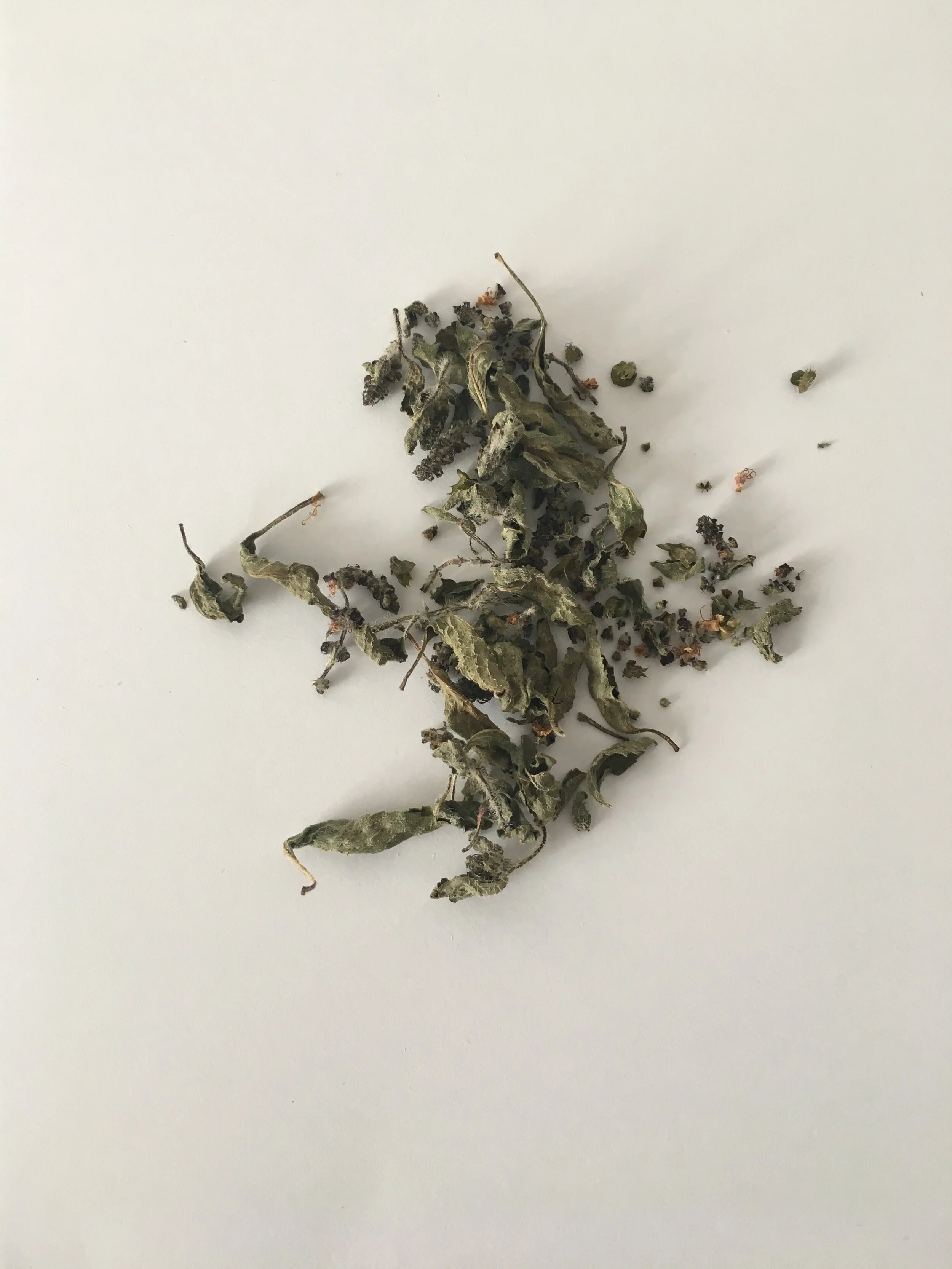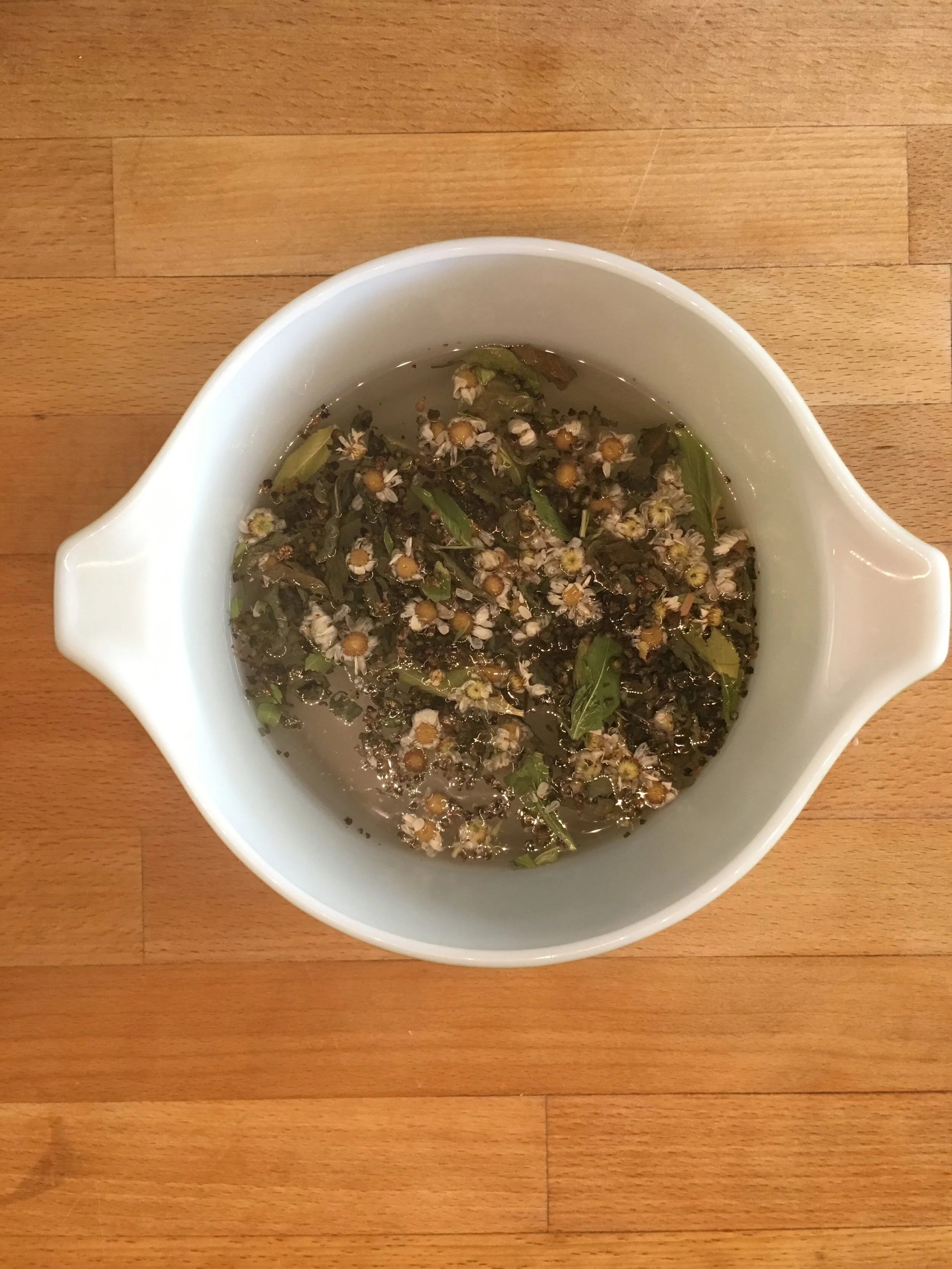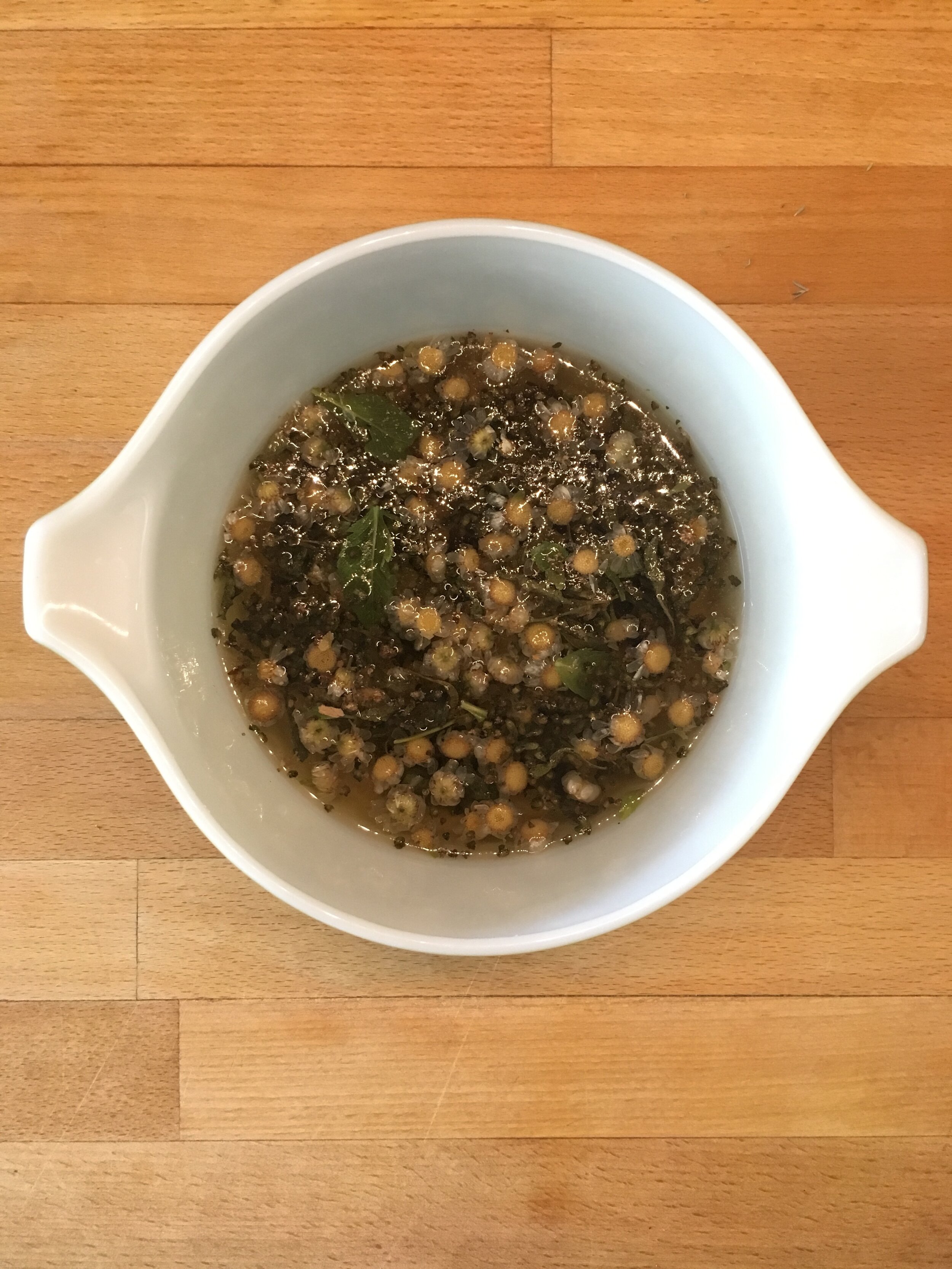Holy Basil Tisane
I want to talk first of all, about these words: tea, herbal tea, and tisane which we commonly hear about but that we not necessarily know what they really mean.
Tea refers to the leaves of just one plant Camellia Sinensis, an evergreen shrub native to Asia.
Herbal teas are the same as tisanes. They are infusions made from leaves, bark, roots, berries and seeds from varied plants.
But the biggest difference between Tea vs Tisane is the caffeine. All teas have caffeine and herbal infusions, are caffeine free.
Antes que nada quisiera referirme a estas denominaciones té, té de hierbas y tisana, de las que escuchamos bastante y que no siempre sabemos a lo que refieren.
Té se refiere a las hojas de una sola planta, Camellia Sinensis, un arbusto perenne nativo de Asia.
Los tés de hierbas también se les conoce como tisanas. Son infusiones hechas de hojas, corteza, raíces, bayas y semillas de diferentes plantas.
Pero la mayor diferencia entre el té y la tisana es la cafeína. Todos los tés tienen cafeína mientras que las infusiones de hierbas, no
Ocimum sanctum
Holy basil is also known as tulsi, considered by hindu culture “the Queen of Herbs”, the manifestation of the goddess Lakshmi in form of a plant.
Tulsi has adaptogenic properties, meaning that it helps supporting a healthy stress response, balancing different processes in the body including the appetite shut off. It nourishes the body, mind and spirit through balancing and protecting against stress in the body. This herb can directly help the body “adapt” to physical, chemical, metabolic and psychological stressors. You can use its adaptogenic properties by drinking it daily or as a needed acutely in stressful situations. Since tulsi is also a powerful nerving, it can help stabilize and restore a frayed nervous system, offering positive effects on our cognitive function and memory though its anti depressive and anxiety regulations actions
Please notice that adaptogens should not be substituted for healthy lifestyle practices such as good sleep habits, exercise and diet.
La albahaca sagrada también se conoce como tulsi, considerada por la cultura hindú como "la reina de todas las hierbas" la manifestación de la diosa Lakshmi en forma de una planta.
Tulsi tiene propiedades adaptógenas, lo que significa que nos ayuda a mantener una respuesta saludable al estrés, equilibrando diferentes procesos en el cuerpo, incluido el de la pérdida de apetito. Nutre el cuerpo, la mente y el espíritu a través del equilibrio y sirve como protección contra el estrés. Esta hierba puede ayudar directamente al cuerpo a "adaptarse" a los estresores físicos, químicos, metabólicos y psicológicos. Podemos incorporar sus propiedades adaptógenas bebiéndola diariamente o para situaciones puntuales según sea necesario. Esta albahaca también puede ayudarnos a estabilizar y restaurar un sistema nervioso desgastado. A través de sus acciones reguladoras contra la depresión y la ansiedad pueden ayudarnos tambien en nuestra función cognitiva y de memoria
Es muy importante considerar que los adaptógenos en ningún caso deben sustituirse por prácticas de estilo de vida saludables, como son los buenos hábitos de sueño, ejercicio y dieta.
Ingredientes:
Tulsi combina maravillosamente con hisopo, mentas, melissa
2 tazas de agua
1 cucharada de manzanilla
2 cucharadas de albahaca sagrada tulsi
1 trozo pequeño de jengibre fresco pelado (1 cucharadita de jengibre seco)
1,5 cucharaditas de sirope de albahaca sagrada (1 cucharadita de miel cruda)
1 cucharada de aceite de coco
1 cucharadita de jugo de limón recién picado
Opcional: toque de kombucha (de jengibre funcionaría muy bien)
Ingredients
Tulsi combines beautifully with anise hyssop, mint, lemon balm
2 cups of water
1 Tablespoon Chamomile
2 Tablespoon tulsi holy basil
1 small knob of fresh ginger peeled (1 teaspoon dried ginger power)
1.5 teaspoon holy basil syrup (1 teaspoon raw honey)
1 Tablespoon coconut oil
1 teaspoon freshly squeezed lemon juice
Optional: splash of kombucha (ginger would work great)
Hervir agua y verter sobre tulsi y manzanilla en un recipiente seguro para el calor.
Dejar reposar 30 minutos. Cuela las hierbas del líquido. Vierte el té en una licuadora. Agregue jengibre, sirope (a la miel), aceite y jugo de limón. Licúa a alta velocidad hasta que esté cremoso y bien mezclado (1-2 minutos)
Boil water and pour over tulsi and chamomile in a heat safe container.
Allow to steep 30 minutes. Strain herbs from the liquid. Pour tea in a blender. Add ginger, syrup (or honey), oil and lemon juice. Blend on high speed until creamy and well mixed (1-2 minutes)
Vierte en un vaso y agrega una rodaja de limón o un chorrito de kombucha.
Disfrútalo de inmediato y puedes tomarlo por la mañana o por la tarde.












